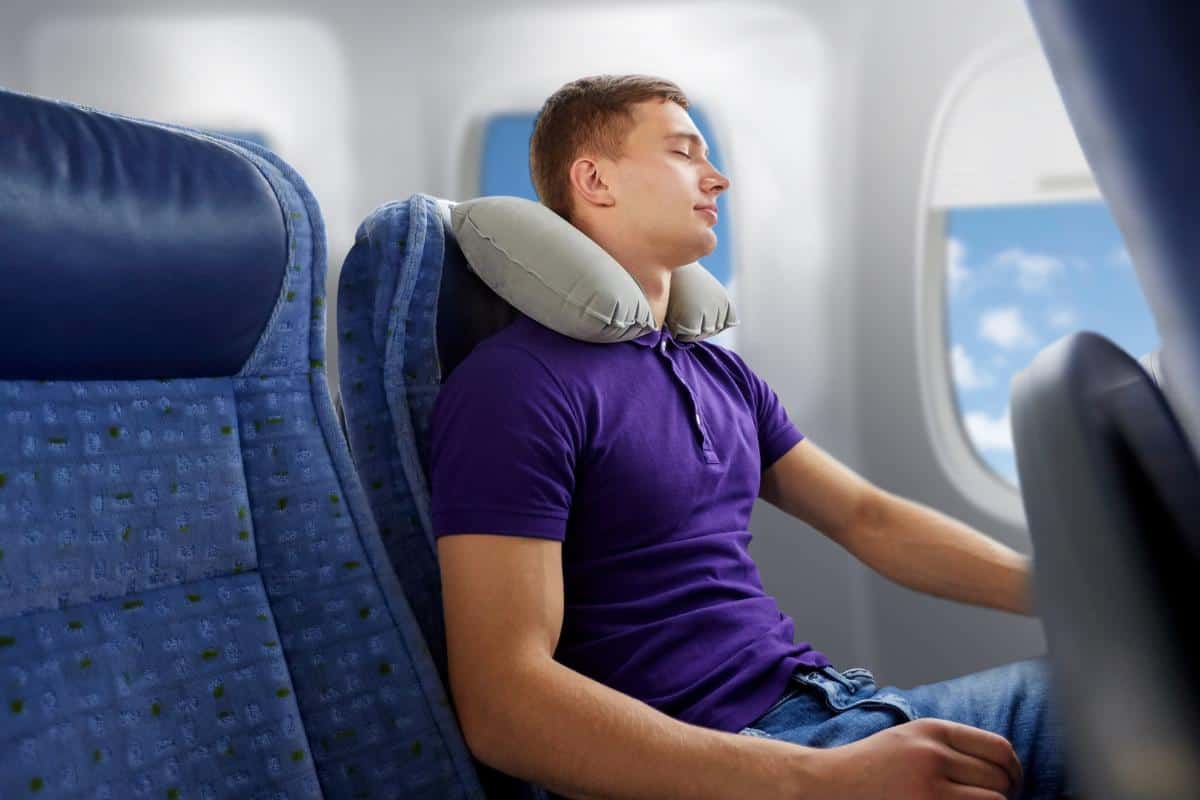How to Maintain a Proper Sleep Cycle as a Frequent Traveller
This is a collaborative post.
Travelling frequently can disrupt our natural sleep patterns, leading to fatigue and decreased productivity. Let’s explore effective strategies to maintain a healthy sleep cycle for those who travel often.
The effects of insufficient sleep extend beyond just feeling tired. It can lead to problems with learning, decision-making, and emotional regulation. For those who frequently travel, these issues are compounded by the physical and mental demands of travel itself.

Jet lag, a common issue for frequent travellers, arises from disruptions to the body’s circadian rhythms caused by rapid travel across time zones. This misalignment can lead to difficulty falling asleep, staying asleep, and can significantly impact overall sleep quality.
In the U.S., roughly one in four adults doesn’t get enough sleep, and while not all these cases are travel-related, a sizable number can be attributed to the irregular schedules and stresses of frequent travel.
Understanding Your Sleep Cycle
Maintaining a proper sleep cycle starts with understanding the fundamentals of how our bodies regulate sleep. Two key factors are our circadian rhythms and personal sleep patterns, both of which play a crucial role in how we adapt to changing sleep environments.
The Importance of Circadian Rhythms
Our sleep cycle is intricately linked to circadian rhythms, internal clocks that are synchronized with the natural day-night cycle. Travel, especially across time zones, can disrupt these rhythms, leading to sleep disturbances like jet lag.
Personal Sleep Patterns
Each individual has unique sleep preferences and needs. Some people are naturally inclined to stay up late, while others are early risers. Understanding your personal sleep pattern can assist in planning your travels to minimize disruptions to your sleep cycle.
Pre-Travel Preparation
Proper preparation before embarking on your journey can significantly enhance your ability to maintain a healthy sleep cycle while travelling.
Adjusting Your Schedule Beforehand
Adapting your body to a new time zone before you actually travel can make a substantial difference in mitigating the effects of jet lag. Start by shifting your bedtime and wake-up time closer to the schedule of your destination.
If you’re travelling east, go to bed earlier, and if you’re heading west, try staying up a bit later. This gradual adjustment can be done over several days, typically moving your sleep time by an hour each day.
This preemptive shift in your sleep schedule helps your body’s internal clock to realign, making the transition smoother once you reach your destination.
Smart Packing
What you pack can greatly influence your sleep quality, especially when you’re away from the familiar comforts of home. Consider including items in your luggage that aid in sleep:
- Eye Masks: An eye mask can be invaluable in environments where you can’t control lighting, such as on aeroplanes or in hotels with insufficient blackout curtains. It helps signal to your brain that it’s time to sleep despite external light conditions.
- Earplugs: Earplugs are a simple yet effective way to reduce ambient noise. Whether it’s the hum of an airplane or the unfamiliar sounds of a city at night, earplugs can help you maintain a peaceful sleep environment.
- Travel Pillow: A good travel pillow can provide the necessary neck support during a flight or long journey, making it easier to rest comfortably and arrive at your destination feeling refreshed.
- Comfortable Clothing: Wearing comfortable clothing can also improve sleep quality, especially on long flights. Choose loose-fitting, breathable fabrics to stay comfortable.
This proactive approach can significantly reduce the disruption to your sleep cycle and help you maintain your overall health and well-being while on the move.
Strategies While Traveling
While on the move, several strategies can help you maintain your sleep health. From staying hydrated to optimizing your sleeping conditions, these tips are designed to help you adapt to new environments without sacrificing sleep quality.
Stay Hydrated, Avoid Caffeine and Alcohol
Maintaining hydration is key for good sleep. Conversely, consuming caffeine or alcohol can adversely affect sleep quality, so it’s best to limit these, especially before bedtime.
Optimize Sleeping Conditions
Creating an environment conducive to sleep in your accommodation can greatly improve sleep quality. This includes managing light exposure, setting an appropriate room temperature, and minimizing noise.
Use Light to Your Advantage
Exposure to natural light can help regulate your circadian rhythm, especially when travelling across time zones. Aim to get sunlight exposure during the day, particularly in the morning, to help reset your internal clock.
Be Mindful of Naps
Napping can be beneficial, but long naps can interfere with nighttime sleep. Short power naps are more effective in reducing sleep debt without affecting your regular sleep cycle.
Post-Travel Adjustment
After your travels, it’s important to allow your body to readjust to your normal routine. This includes giving yourself time to adapt and seeking professional help if you face persistent sleep issues.
Give Yourself Time to Adjust
Post-travel, allow yourself to adjust, especially when you’ve crossed multiple time zones. Gradually return to your regular schedule and sleep patterns.
If you’ve done it all by the book and your sleep problems persist, consider consulting with a healthcare provider or sleep specialist. They can offer guidance and strategies to manage sleep disturbances effectively.